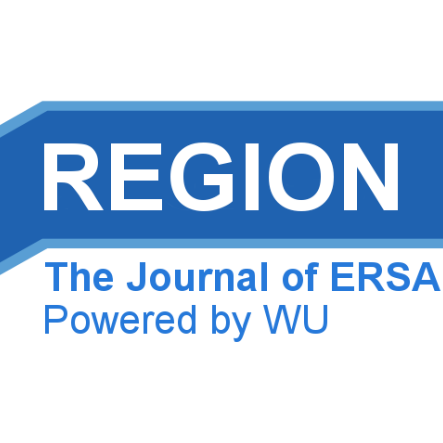Similitudes and singularities of higher education systems in the Mediterranean countries: Historical construction, policy and evolution of key indicators
DOI:
https://doi.org/10.18335/region.v6i1.207Abstract
Higher education is one of the most important key values for changes in societies and exchanges among different societies. Analysing higher education systems in Europe, it is clear that Southern Europe has been determining many differences with the rest of the continent, despite the effort of the Bologna Process to ensure comparability in the standards and quality of higher education qualifications.
Taking into account four Southern Europe countries – Portugal, Spain, Italy and Greece – and regarding their link to a certain Mediterranean culture, our proposal is to analyse these countries’ higher education systems, their growth, using indicators on educational stock, economic growth and development, supply and demand of higher education and economic indicators relating training and the economy such as graduated employment rates. Also education public policies will be considered in the analysis as they interfere in higher education systems’ trajectories. Comparing them we will be able to identify similitudes and singularities in these educational realities, leading us to conclude about the existence of a Southern European way of making higher education a specific value in Mediterranean culture.
This topic is even more important as it may be related to the recent key focus of EU activities in Southern Mediterranean region. The Mediterranean Strategy for Sustainable Development (MSSD) recognises that education in the Mediterranean needs strengthening by introducing sustainable development, through a holistic approach, into educational curricula, from primary school right up to higher education. The search for synergies between higher education research and innovation in the Mediterranean area already started. With our post-doctoral research project focusing on higher education and its links to societies, educational policies and national economies, our goal is to share some questions and to contribute to the debate on higher education reinforcing and enriching sociological analysis on higher education between Mediterranean countries.

Published
How to Cite
Issue
Section
License
Copyright (c) 2019 Cláudia Urbano

This work is licensed under a Creative Commons Attribution-NonCommercial 4.0 International License.
REGION is an open journal, and uses the standard Creative Commons license: Copyright We want authors to retain the maximum control over their work consistent with the first goal. For this reason, authors who publish in REGION will release their articles under the Creative Commons Attribution license. This license allows anyone to copy and distribute the article provided that appropriate attribution is given to REGION and the authors. For details of the rights authors grant users of their work, see the "human-readable summary" of the license, with a link to the full license. (Note that "you" refers to a user, not an author, in the summary.) Upon submission, the authors agree that the following three items are true: 1) The manuscript named above: a) represents valid work and neither it nor any other that I have written with substantially similar content has been published before in any form except as a preprint, b) is not concurrently submitted to another publication, and c) does not infringe anyone’s copyright. The Author(s) holds ERSA, WU, REGION, and the Editors of REGION harmless against all copyright claims. d) I have, or a coauthor has, had sufficient access to the data to verify the manuscript’s scientific integrity. 2) If asked, I will provide or fully cooperate in providing the data on which the manuscript is based so the editors or their assignees can examine it (where possible) 3) For papers with more than one author, I as the submitter have the permission of the coauthors to submit this work, and all authors agree that the corresponding author will be the main correspondent with the editorial office, and review the edited manuscript and proof. If there is only one author, I will be the corresponding author and agree to handle these responsibilities.




